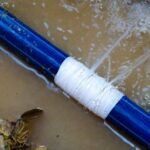INTRODUCTION
The engine room serves as the powerhouse of any vessel, playing a pivotal role in ensuring its safe and efficient operation. To maintain the seamless functioning of a vessel, regular inspections and maintenance of engine room equipment are essential. But how often should these inspections and maintenance tasks be conducted?
In this article, we will delve into the significance of these inspections and maintenance tasks and provide comprehensive guidelines on their recommended frequency.
IMPORTANCE OF MAINTENANCE AND INSPECTIONS
Within the engine room, critical equipment such as engines, generators, pumps, and cooling systems are subjected to wear and tear over time. Regular inspections and maintenance serve as proactive measures to identify and rectify potential issues before they escalate into major problems. Addressing minor concerns promptly not only helps prevent costly repairs and unexpected downtime but also mitigates the risk of catastrophic failures that could compromise the safety of the vessel and its crew.
FACTORS INFLUENCING INSPECTION FREQUENCY
Determining the optimal regularity for engine room equipment inspections and maintenance depends on several factors, including:
- Manufacturer’s Recommendations
The manufacturer’s guidelines and recommendations should be the primary point of reference. Equipment manufacturers provide detailed instructions on inspection intervals, maintenance procedures, and specific requirements tailored to ensure optimal performance and longevity of the equipment.
- Vessel Type and Operation
Inspection and maintenance rates are influenced by the type and operational profile of the vessel. Commercial vessels, for example, may require more frequent inspections due to their extensive use and demanding operating conditions. Similarly, vessels operating in harsh environments such as saltwater or extreme temperatures may necessitate increased attention to combat accelerated wear and corrosion.
- Regulatory Compliance
Vessels must adhere to specific regulatory standards and class society rules. These regulations often include mandatory inspection and maintenance requirements that must be followed to maintain compliance and ensure the seaworthiness of the vessel. Staying up to date with the latest regulations is crucial for conducting inspections accordingly.
RECOMMENDED INSPECTION AND MAINTENANCE SCHEDULE:
While specific requirements may vary based on the factors mentioned above, the following serves as a general guideline for the inspection and maintenance frequency of engine room equipment:
- Daily Inspections
Critical equipment such as main engines, auxiliary engines, and control systems should undergo a visual inspection and basic operational check on a daily basis. This ensures the early detection of any immediate issues that require attention.
- Weekly or Bi-Weekly Inspections
Equipment like pumps, valves, and Pool heaters should be inspected at least once every week or every two weeks, depending on the vessel type and operating conditions. These inspections may involve visual checks, lubrication, cleaning, and verifying proper functioning.
- Monthly Inspections
A more comprehensive inspection should be carried out on a monthly basis. This includes a detailed examination of all major equipment, electrical systems, fuel systems, and safety devices. Any necessary adjustments, cleaning, or minor repairs should be performed during this inspection.
- Annual and Periodic Inspections
In addition to regular inspections, annual or periodic inspections should be conducted as recommended by the manufacturer or regulatory bodies. These inspections typically involve more in-depth checks, servicing, and testing of critical equipment. The involvement of specialized technicians or authorized service providers may be necessary.
CONCLUSION
The reliability, efficiency, and safety of a vessel heavily rely on regular inspections and maintenance of engine room equipment. Establishing a consistent inspection schedule, aligned with manufacturer recommendations, vessel type, and regulatory requirements, is crucial. By prioritizing inspections and maintenance, vessel owners and operators can mitigate risks, prolong the lifespan of their engine room equipment, and ensure safer and more efficient voyages. Remember, investing in inspections and maintenance today can yield substantial cost savings and secure the long-term integrity of the vessel
If you’re in need of pool services, advice, or cleaning, Techno Santo Mezel Nig Ltd is a trusted provider to consider. Reach out to us at 08033154209 for reliable assistance and support.
CLICK HERE FOR MORE INFORMATION ABOUT OUR SERVICEShttps://technosantomezel.com/service/swimming-pool-construction/


